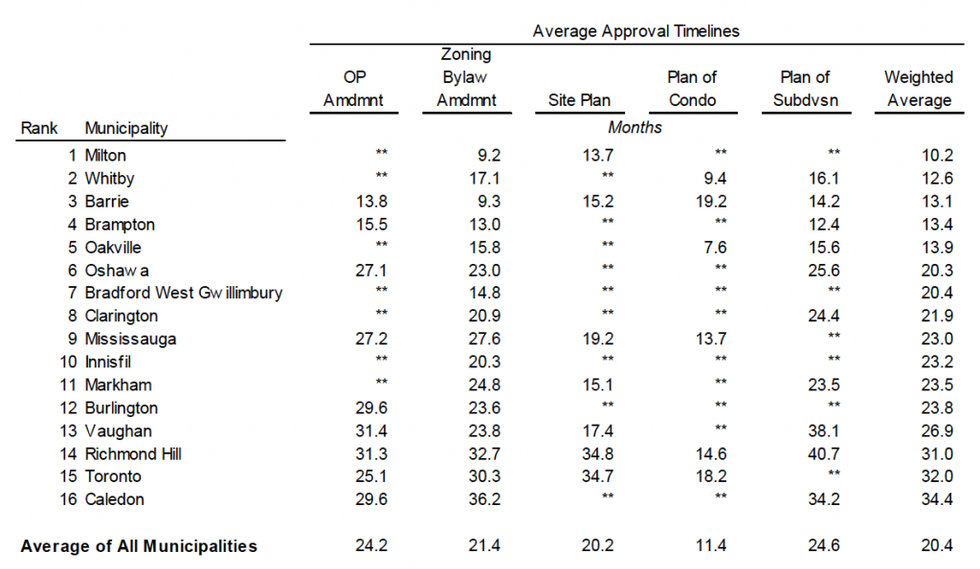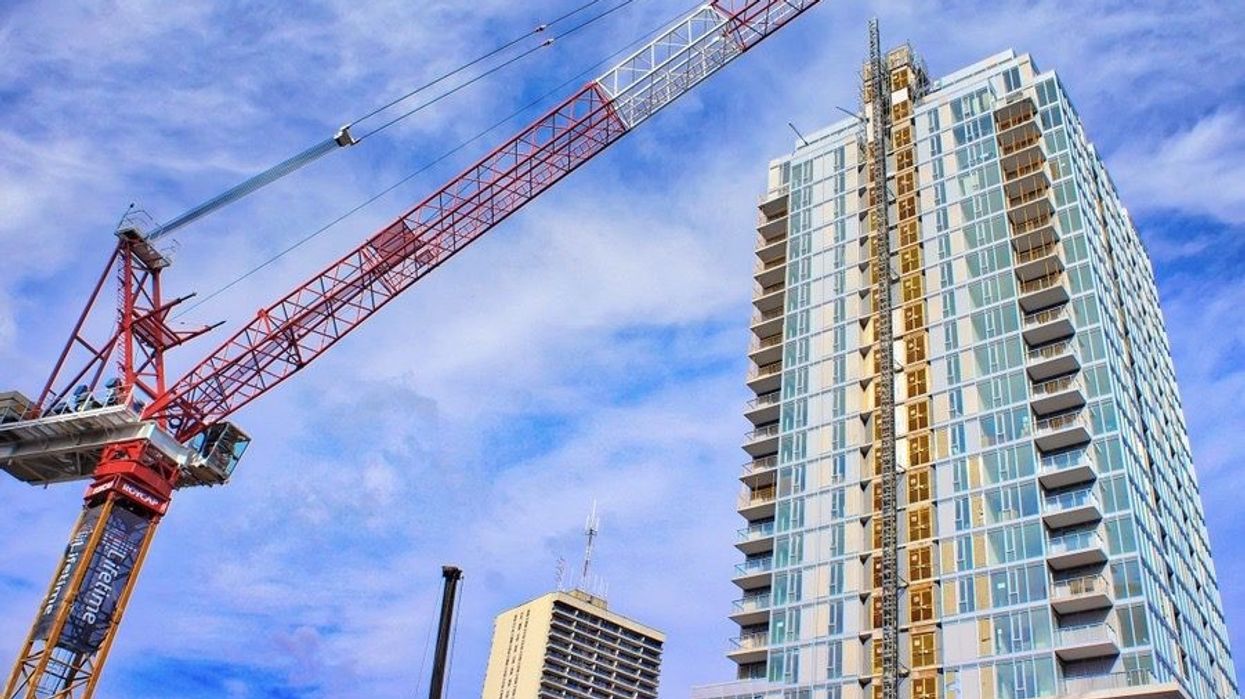Slow-moving approval timelines for new housing in the Greater Toronto Area (GTA) has been a sore point for home builders for years, but it may soon become a primary concern for home buyers as well. A new report from the Building Industry and Land Development Association (BILD) claims that lengthy approval times have added up to $50,000 to the price of condo apartments since 2020.
Approval timelines range from 10 to 34 months depending on the municipality, taking on average 20 to 24 months across the entirety of the GTA, the report states. Comparing this to similar research carried out for the Canadian Home Builders' Association Benchmarking Study, the BILD report notes that approval timelines in the GTA are higher than in any other part of Canada.
“With the average approval timeframe across the GTA now being 21 months, and with approvals in some municipalities stretching to 32–34 months, not only are municipal inefficiencies and delays slowing the addition of housing supply, but they are also adding directly and indirectly up to $3.30 per square foot to the cost of a new home,” said Dave Wilkes, President and CEO of BILD. “To put that in context, each month of delay in approvals adds $2,600 per month to the cost of a new 800-square-foot apartment and over double that for a new single-family home.”
According to the report, every month of pre-construction delays adds $2.30-3.30 per sq. ft to the price of a condo. For an 800-sq.-ft condo, this means that just six months of delays can add between $12,480 and $15,840 to the price. Also of note is the fact that construction prices over the past year have been subject to runaway inflation, with Statistics Canada data revealing an average increase of 22.6% in the cost of residential construction in the 12 months ending in the first quarter of 2022.

On a city-by-city basis, Milton was found to have the quickest approval times overall, averaging 9.2 months for a zoning bylaw amendment and 13.7 months for a site plan approval. It was followed by Whitby, Barrie, Brampton, and Oakville. Toronto ranked 15 out of the 16 municipalities included, with an average zoning bylaw amendment approval time of 30.3 months and an average site plan approval time of 34.7 months. Caledon was the worst offender with an average wait of 36.2 months for a zoning amendment.
Interestingly, when it comes to approval times, there was found to be little difference between small and large developments. Projects with three to 50 units take an average of 506 days to get approved, meanwhile developments with 400 to 500 units take just slightly longer at 550 days. This means that when it comes to smaller developments, the amount of staff days spent per unit approved is five to 10 times higher than with bigger developments.
"Simply put, unless major changes are made to streamline approval processes for smaller applications, the extremely high ‘per unit’ time investments required by the municipal review process for smaller applications will contribute to making housing forecasts difficult to achieve and put a significant strain on finite staffing resources to review the larger, more complex files that may better merit greater attention," the report reads.
The findings hearken back to the Government of Ontario's More Homes For Everyone Act. In it, the Ford government included "incentives" to get municipalities to approve developments and rezoning applications in a timelier manner. The incentives come in the form of lost application fees. If a municipality fails to make a decision on a development application within 60 days, they would be required to refund 50% of the fee. If no decision is reached within 90 days, 75% of the fee would be refunded. If the decision process surpasses 120 days, the entire fee would be refunded. A similar model would be used for rezoning applications.
Although the glacial timelines are clearly an issue, the BILD report says that the Ford plan does not address the root of the issue and, in fact, could exacerbate it.
"Given that both municipalities and many applicants agree that the difficulty attracting and retaining planning staff is a major issue that contributes to long approval timelines, removing three-quarters of planning application fees, which go towards funding staff salaries, is unlikely to have any positive effects on the ability of municipal planning departments to be adequately resourced to improve application timelines," the report reads.
It then goes on to say that it's reforms at the provincial level that may be needed to speed up approvals, as cities are bound by set requirements laid out in the Planning Act and other related statutes.
"Attempts to streamline the review and approvals process are somewhat limited by Provincial requirements," the report says. "The Province may need to take a more active role, in concert with municipalities and home builders, in shaping the development process to help municipalities overcome constraints imposed by legislation and regulations."
The report also notes that it's oftentimes not the municipality, but the applicant, who is at fault when it comes to drawing out approval times. In some cases, municipalities will spend as much time as necessary working with applicants to reach a mutually agreeable development proposal. This naturally extends timelines much further than if the city were to outright reject an initial proposal that it would not accept. Resubmissions have often taken a long time, and the quality of both initial submissions and resubmissions can be poor, requiring additional staff time spent helping applicants get on the right track.
"In some cases, applicants submit site plan applications concurrently with rezoning applications, meaning when the rezoning is approved, the site plan review process begins even though the application date was significantly prior to the actual undertaking of the review," the report reads.





















